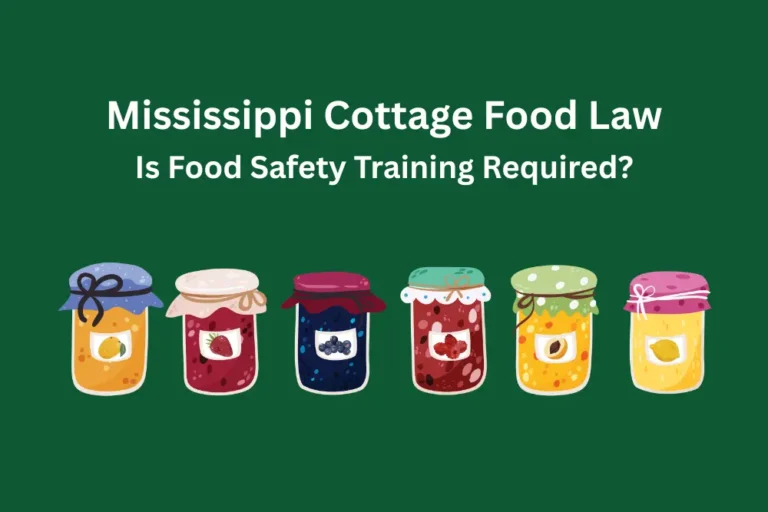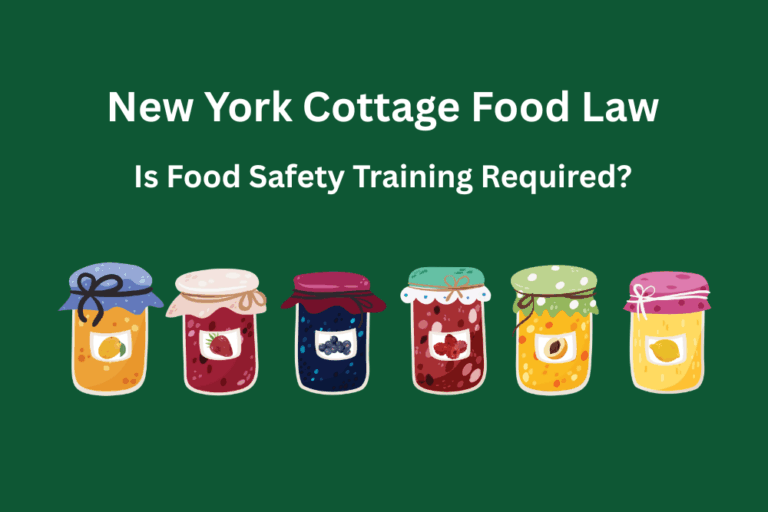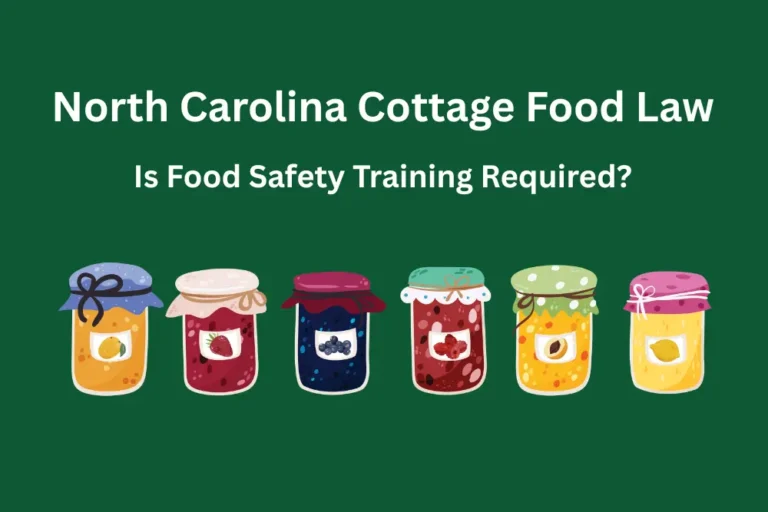Tennessee Cottage Food Law: Do You Need Food Safety Training?
Article Summary
Selling homemade food in Tennessee? The cottage food law doesn’t require food handler training, but getting your card can still give your business an edge. This quick video explains why it’s worth it, what you’re allowed to sell, and how to get your food handler card online with FoodSafePal.
Selling homemade food can be a great way to share your products and earn extra income, but every state has its own rules you need to follow.
Each state sets its own cottage food laws that define what you can make, where and how you can sell it, and whether you need food safety training.
This article explains Tennessee’s cottage food law and whether you need food safety training to sell homemade food.
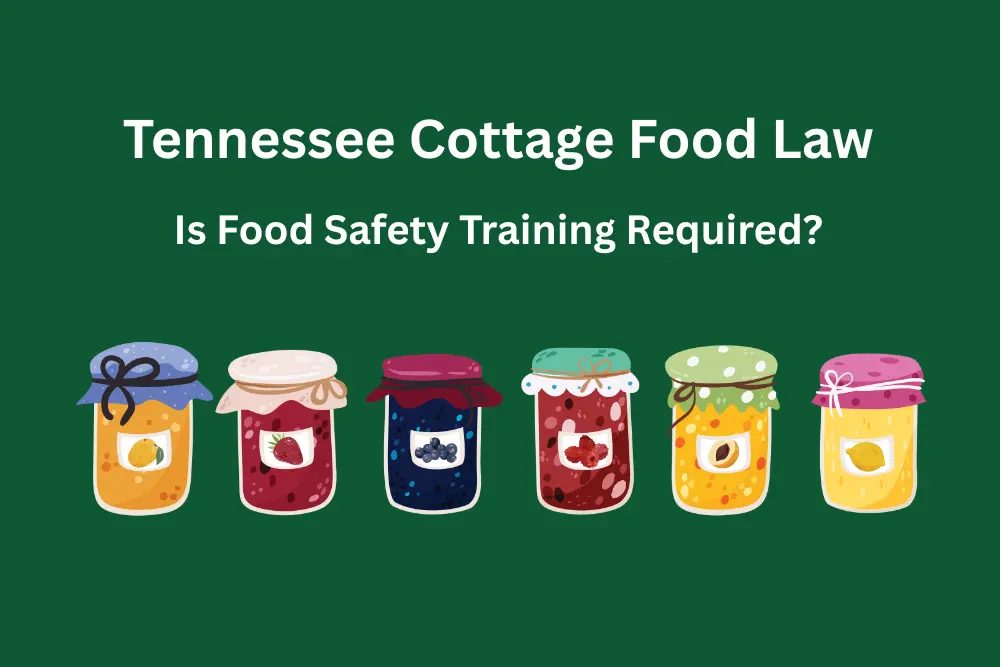
Tennessee cottage food law
Tennessee cottage food production falls under the Tennessee Food Freedom Act (TFFA). This law allows you to make and sell many types of homemade foods from your home kitchen without needing licenses, permits, inspections, or routine oversight from the state or local health departmen, unless there’s a reported foodborne illness.
You can sell directly to consumers or through third parties. Sales can be made in person, at a farm stand, at markets, in retail shops or grocery stores, or even online and over the phone. Delivery is also allowed, whether by you, an agent, or a third-party carrier.
Here are examples of allowed foods:
- Baked goods like breads, cookies, cakes, muffins, and brownies
- Jams, jellies, and fruit preserves
- Candy, fudge, and caramel treats
- Snack mixes, granola, popcorn, and trail mix
- Dried herbs, spices, and teas
- Whole, unprocessed fruits and vegetables
- Other non-time/temperature control for safety (non-TCS) homemade foods
You can also sell certain time-temperature control for safety (TCS) foods, but there are restrictions.
For example:
- You cannot sell unpasteurized milk or foods with alcohol, fish, shellfish, or red meat.
- Poultry is allowed only if you meet federal exemptions, such as the 1,000-bird exemption, or use inspected poultry products.
- TCS foods can only be sold in person, either directly from the producer to the consumer or through a farm stand on the property where the food was made.
Summary
Tennessee allows a wide variety of homemade foods, including both shelf-stable and some perishable items, but certain high-risk foods are prohibited. You can sell directly, online, or through retail stores, depending on the type of food.
Do you need food safety training to sell homemade food in Tennessee?
Tennessee does not require you to complete food safety training or earn a Tennessee food handler card to sell homemade food.
But while it’s not required, training can make a big difference for your business. Customers want to feel confident that the food they buy is safe, and a food handler card shows that you care about their health and your reputation.
Food safety training can also create more selling opportunities. Some markets, event organizers, or insurance providers may require or prefer proof of training, even though the law doesn’t.
FoodSafePal’s ANSI-National Accreditation Board (ANAB)-accredited food handler course meets national standards and only takes about 90 minutes to complete. Once you pass, you’ll get immediate access to your food handler card and certificate, plus the option to order a printed version for display at markets or for your records.
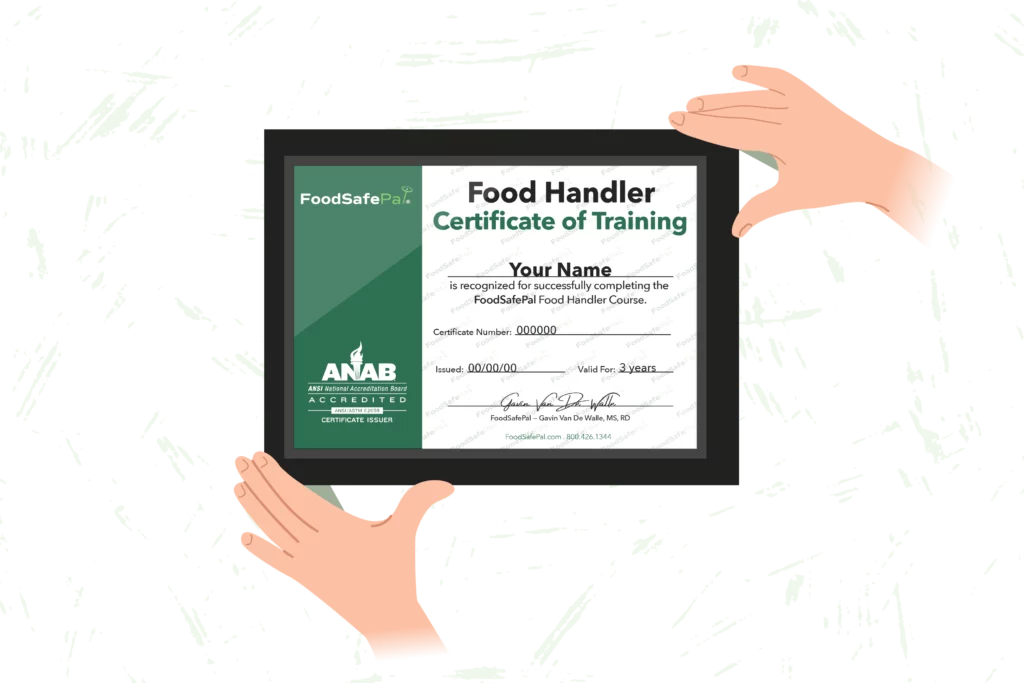
Get Your Tennessee Food Handlers Card
Instant certificate. 100% online in about 90 minutes.
Summary
Food safety training isn’t required in Tennessee, but earning a food handler card can build trust, open more opportunities, and make it easier to insure your business.
Labeling requirements
Tennessee law requires every homemade food item to provide certain information to consumers. This can appear on a label, container, placard, or website, depending on how the product is sold.
You must include:
- The producer’s name, home address, and telephone number
- The common or usual name of the food item
- The ingredients in descending order by weight
- The following statement: “This product was produced at a private residence that is exempt from state licensing and inspection. This product may contain allergens.”
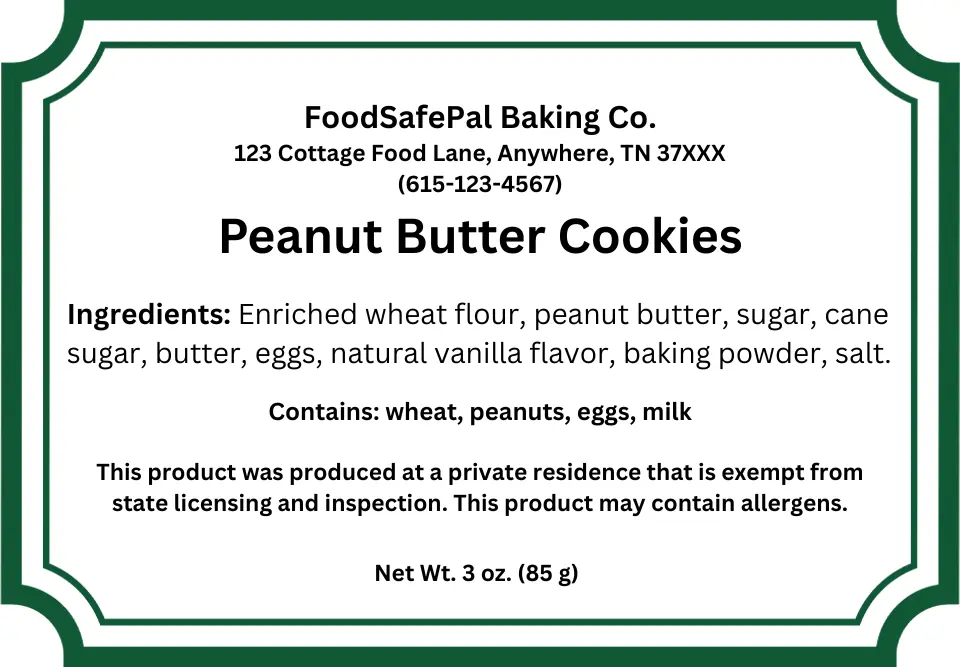
If sold online, this information must be clearly displayed on the webpage. If sold by phone or custom order, you must tell the customer that the food was made in a private residence and may contain allergens, and provide the full label information upon request.
Summary
All Tennessee cottage food products must include the producer’s contact information, product name, ingredient list, and a required allergen statement. These details can appear on a label, placard, or online listing, depending on how you sell.
The bottom line
Tennessee’s cottage food law gives you flexibility to sell many types of homemade foods directly to consumers, online, or even through retail shops, without licenses, permits, or inspections. Some perishable foods are allowed, but high-risk items like unpasteurized milk, alcohol, fish, and shellfish are prohibited.
Food safety training isn’t required, but completing an ANAB-accredited food handler course from FoodSafePal can help your products stand out, build trust with buyers, and support your business growth.
All products must include the required consumer advisory label with your contact information, ingredients, and allergen disclosure.

Get Your Tennessee Food Handlers Card
Instant certificate. 100% online in about 90 minutes.


